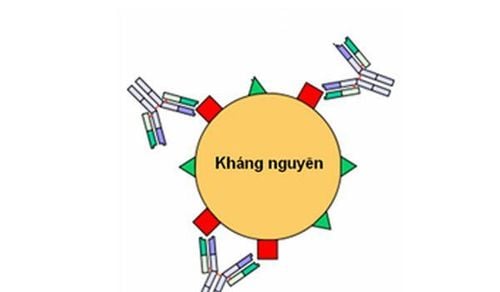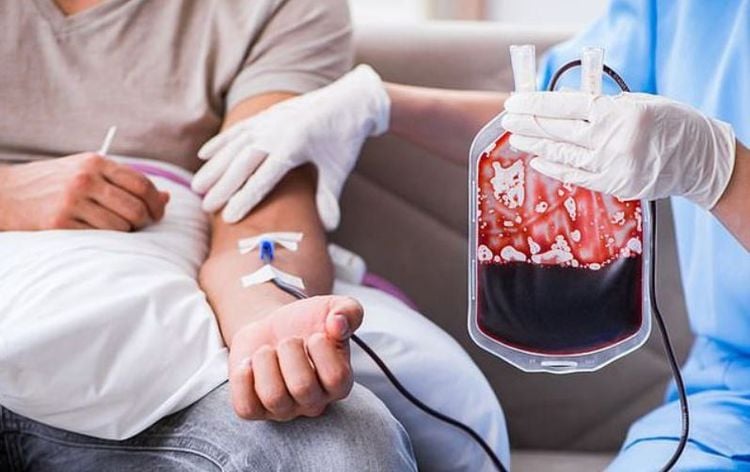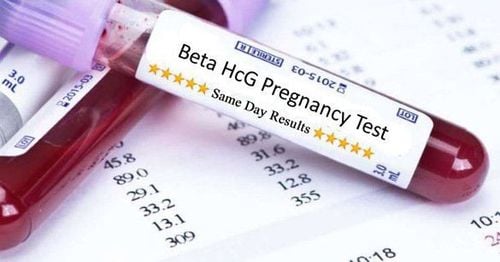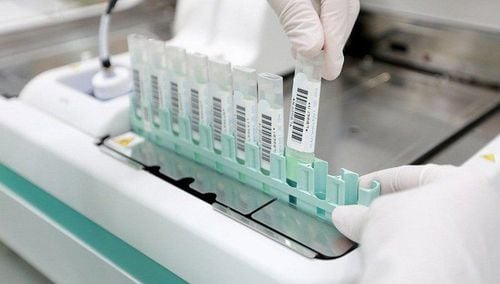This is an automatically translated article.
Article written by MSc Le Thi Na - Doctor of Hematology, Laboratory Department - Vinmec Times City International General Hospital.
Abnormal antibodies, which are IgG in nature, often cause extravascular hemolysis. Abnormal antibodies can also cause acute hemolysis if the patient has a secondary immune response (mother-infant incompatibility).
1. What is an abnormal antibody?
Abnormal antibodies of the red blood cell system are allogeneic antibodies, appearing only after an immune process when the patient's body (or the mother's) comes into direct contact with one or more antigens present on the surface of red blood cells. donor (or child's), but these antigens are not present on the surface of their own red blood cells. Abnormal antibodies to the red blood cell system often appear in patients who have received multiple blood transfusions or in pregnant women who have given birth many times.
2. Conditions for the body to produce abnormal antibodies

Trường hợp truyền máu không hòa hợp kháng nguyên nhóm máu càng nhiều có khả năng cơ thể tạo ra kháng thể bất thường cao
Red cell blood group antigen incompatibility: A must-have condition is the red blood cell blood group antigen incompatibility between the blood donor and the recipient, there must be blood group antigen incompatibility between the mother and the recipient. child. The ability to stimulate antibody production of antigens: Not all antigens can create an immune phenomenon with the same intensity, immunogenicity of blood group antigens and between antigens in the blood group. The same blood group system is also different, the ability to form anti-D antibodies of the Rh system is the strongest (50%), followed by anti-K antibodies of the Kell system (5%). The number of times, the interval of blood transfusion for the patient: The more times of blood transfusions that do not match with blood group antigens, the time between transfusions is enough for the body to produce antibodies, which are favorable factors for the body to create antibodies. abnormal antibodies. The degree of immune response in each individual: Each individual has a different immune response to the same blood group antigen.
3. Consequences of abnormal antibody production for pregnant women and fetuses

Kháng thể bất thường trong huyết thanh của người mẹ có thể gây vàng da tan máu ở trẻ sơ sinh
3.1 For pregnant women Causing blood transfusion complications: If the patient has abnormal antibodies, if the blood transfusion is given to the donor's red blood cells with the corresponding antigen, a transfusion reaction will occur.
Blood transfusion reaction can be an acute hemolytic reaction with very serious and serious clinical manifestations, if not treated promptly, the patient may die or a late hemolytic reaction with hemolytic manifestations outside vascular lumen, appearing after a few weeks of blood transfusion, patients often have the following manifestations: fever, jaundice, dark urine, increased bilirubin in the blood.
Selection of blood transfusions for patients is difficult because of polyagglutination in the antiglobulin stage.
3.2 For the fetus Abnormal antibodies available in the mother's serum can cause fetal anemia and stillbirth, hemolytic jaundice in the newborn if there is an antigenic incompatibility between the mother and the fetus. child.
There are 2 clinical types of neonatal immune hemolytic jaundice due to mother-infant disagreement: Neonatal hemolytic anemia due to Rh blood system incompatibility and neonatal hemolytic anemia due to non-blood group incompatibility Rh .
4. When is the antibody test abnormal?

Bệnh nhân có tiền sử truyền máu nên xét nghiệm kháng thể bất thường
In the practice of blood transfusion, in order to ensure the immunological safety of blood transfusion, an abnormal antibody screening test is performed for the following cases:
The patient has a history of blood transfusion or is at risk for blood transfusion ; Women with a history of multiple miscarriages; If during treatment, the patient needs blood transfusion many times, many days, this test must be repeated periodically no more than every 7 days. At Vinmec Times City International Hospital, a screening test for abnormal antibodies is performed on a fully automated equipment system that allows abnormal antibodies to be detected, from which doctors can advise timely to customers.
Customers can go directly to Vinmec Times City to visit or contact hotline 0243 9743 556 for support.














